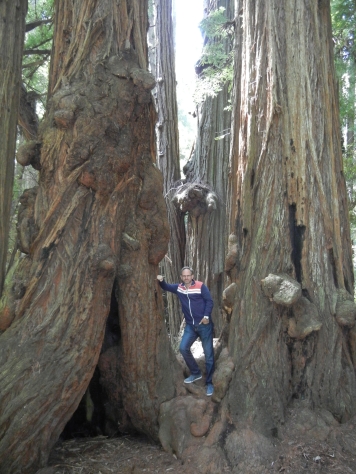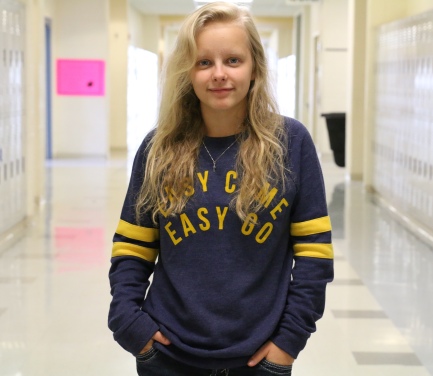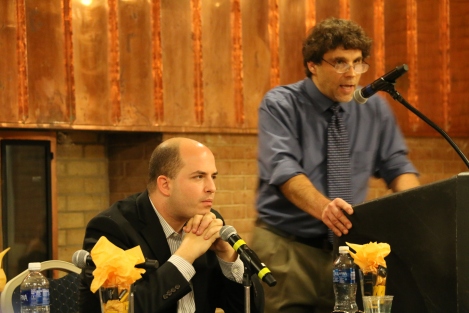When I was 18, I felt like I knew everything. I’m sure all college students aren’t like that, but I was. Looking back, I knew el zippo. As an adult, I have rediscovered the joy of learning and I know it is a privilege that many risk their lives to experience.
I just hop in my VW and drive the back roads listening to podcasts until I reach the Glen Garage. No risk involved. In an effort to apply what I’ve learned to my real life, I’ve taken notes throughout this semester.
So here goes…
Photojournalism I:

Blue is my favorite color and it killed me to crop most of that sky right out of this picture. This is pre-cropped. Best to leave the Ukrainian dancers in. #croppingstinks
The most important thing I learned was how to capture both an action and reaction. Going into the class, I was pretty confident that I was able to take pictures of people and events. But I had never given much consideration to capturing the reaction of others.
This isn’t as easy as it sounds and it takes a lot of patience and moving around to get different angles. As a photographer, you have to be mindful of what is happening all around you and you have to listen to others and anticipate what could come next and then have your camera set and ready to go.
The second lesson I learned is the value of cropping. Removing excess sky or some of the foreground or that person on the right side of the photograph that looks bored (when it’s an exciting event), enhances the composition. Again, this sounds easy, but I have a tough time removing a big portion of a blue sky that took my breath away when I took the photo. And sometimes cutting one odd person out means others get cut out too.
My life/parenting takeaway: Open your eyes and look around. Don’t just focus on who is front and center; take note of those in the background. These people are easy to miss because they are often quiet, content to be unseen, but they matter and they deserve our careful attention. Cropping parts out of photos is tough for me, but what’s been tougher is having to cut out many other “good” things in my life so that I can focus on the most important things in this season. It’s really OK to say “no” because that allows you to say “yes” to something else.
Ethics:
Under a young, brilliant, energetic, extremely gifted philosophy professor, I learned to wrestle with tough questions. I felt tested on a weekly basis as he used stories, that by design, placed us at the center of what seemed like an impossible situation. How would ethics help us make a good decision?

Contemplating life’s big questions makes you feel small – just like Matt in San Fran’s Muir Woods.
Just when I thought I had the “right” answer, it would be tested with another person’s perspective. This would either shore up my own argument or send me back to the drawing board. We had class debates and even worked in small groups to create own own societies based on different ethical theories.
The readings were tough, but man did my professor bring that information to life for me! I have two full spirals almost completely filled with notes from class; notes that I can look back and understand. I won’t be tossing these.
My life/parenting takeaway: Help your children learn to think critically. Ask questions, don’t always resort to lecturing and try hard not to tell them what they are supposed to think. Help them discover truth on their own, give them the tools they need, and don’t be scared if they are wrestling with believing certain things that you hold dear as a parent. It’s really ok. Respect their perspective. When you’ve blown it with them, humble yourself and admit it. This keeps the door for conversation wide open. Lectures are often equivalent to slamming the door in their faces. Just ask my kids.
Mass Media & Society:
Each week we looked at various media clips and sought to analyze and evaluate how different themes were depicted. We covered young adults, body image, gender, sexuality, class, African Americans, violence, and indecency. We had insightful class discussions and I found it eye opening to hear the perspective of the sea of Millennials that surrounded me.

My daughter is my hero when it comes to befriending others, regardless of how they are different from her. #imwithher
My professor ranks up there as one of the most fascinating people I have ever met. He is off the charts knowledgable in all things culture, and excited about what he was teaching. Using framing questions, he challenged me to think outside the box and to back up what I believe with solid reasoning/evidence/proof.
Getting back a paper is more than just seeing your grade – you get a stream of conversation from him that starts in his mind and flows through his red pen that makes its way all over your paper in every direction. It’s a true art form and deciphering the handwriting is a bonus challenge, worthy of a prize. The feedback is helpful because he often asks insightful questions that make you think deeper and even consider other perspectives.
People often take this class because they view it as fun and easy. It was fun, yes, but as I was face to face with recognizing my prejudices towards others different than myself, it was anything but easy. It was humbling, but good and necessary. And I’m still learning.
My life/parenting takeaway: Make it a point to befriend someone very different than yourself. Ask questions. Listen, listen, listen. And then listen some more. It’s perfectly fine to have different opinions and hold to what you believe and still love and accept other human beings. I think this is one of those things that is more “caught than taught.” Our kids are listening to how we speak about others; they see our attitudes, probably more than we think they do. I want to be a good model for them. Am I exposing them to different people or is it just the same old, same old?
News Reporting:
This class gave me the practical experience of getting out there as a journalist. We had to pitch story ideas, interview people, research, attend county/city council meetings, cover police reports, attend/report on events and of course write stories. And with stories come edits. Lots of red ink comin’ my way!

Dr. Kirch, my professor, leading a panel discussion featuring CNN’s Brian Stelter, a TU graduate.
As a writer, I am so grateful for the detailed feedback my professor gave me. Rarely does one get such specific and helpful critique from a professional. I think my writing has improved but more importantly, the edits teach me how to be more concise, how to write a compelling lead, and what information can be left out of a story. I hate cutting words. Hate it. My professor doesn’t seem to mind at all. Yet he gets the struggle because he’s been there.
As an expert in his field, he brought that experience into our classroom by using real examples from his life and work. We also learned a good deal about civics and politics. Reading the news everyday from three online papers was required and it’s been a great practice. I can actually have an intelligent conversation with my politics-loving mom!
My life/parenting takeaway: There is value in every story because every story is someone’s story. Listening and asking good questions is essential. My professor went above and beyond making time to help me as a writer. In many ways, he is more of a mentor; always willing to help, give advice, and in some cases, just listen to me ramble and then look for ways to encourage me as I tear up over a story. Yep. It’s happened. My interactions with him have always left me inspired to keep doing what I’m doing and to be patient with the learning process. As a human being and parent, that is what I want my disposition to be toward others. Specifically with my children, I want to commend more and correct less. I want to inspire.
Doesn’t college sound like a blast? I really should have done this when I was younger!